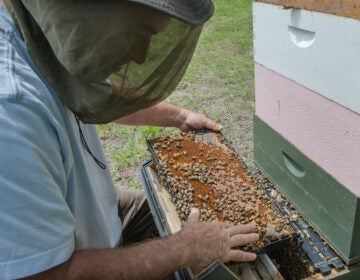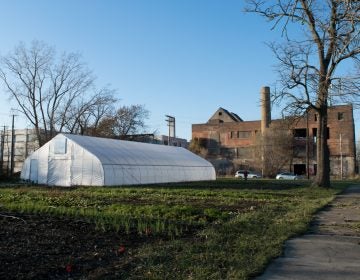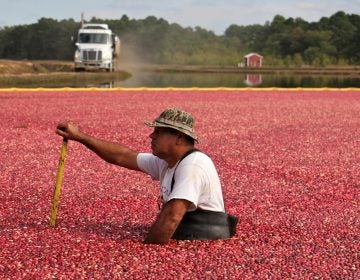Emptier grocery shelves help cultivate a growing interest in home gardening
Many people have become interested in growing their own vegetables during this pandemic, to try and feed themselves and those around them.
Listen 1:22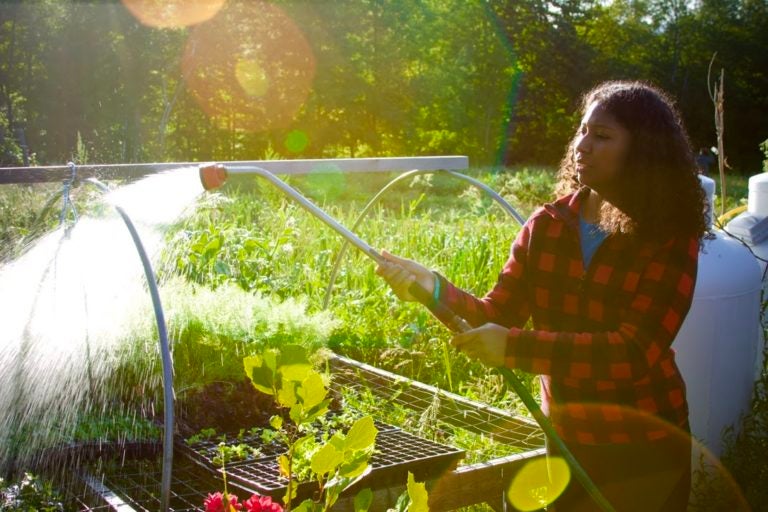
(Courtesy of Soul Fire Farm)
Jameson Altott has been trying to live a self-sustaining lifestyle for years, to give as much back to nature as he takes. Part of that has meant growing as much of his own food as possible.
He worked on an organic farm in Natrona Heights, in western Pennsylvania, after graduating from college, and learned how to grow vegetables, take care of animals, operate a tractor, and make soap and beer.
Now, he has his own home-improvement contracting business, but he and his partner grow and preserve a lot of food from their garden: tomatoes, potatoes, radishes, carrots, beans, berries and so on. They also have chickens for eggs. Altott estimates they grow 60% of the food that feeds their family of four and go to stores only once a month for bulk items like rice, flour, oats, and milk.
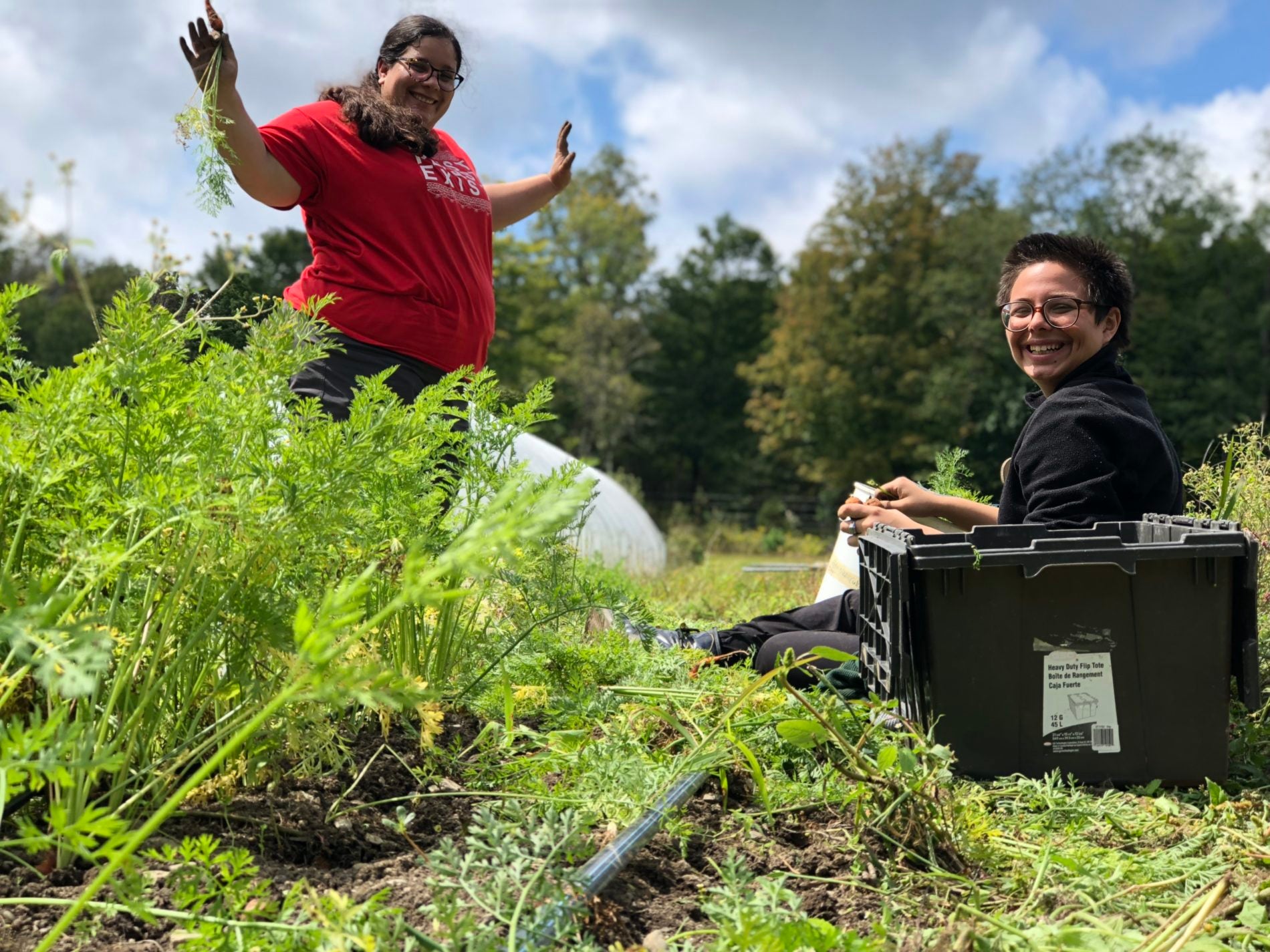
“We are lucky to have preserved a lot of food. We still have canned fruits and vegetables and jams and berries in the freezer, and meat in the freezer, from what we do,” Altott said this week. “That makes us feel good, we don’t have to go to the grocery store for a lot of vegetables.”
“Even toilet paper, we have cloth diapers for our baby. I installed a sprayer for our toilet … so if we run out of toilet paper, we have means.”
Interest in growing one’s own food is surging because of the COVID-19 pandemic. Oregon State University’s Master Gardener program noticed this, and made its online vegetable gardening course free through the end of April. Its post on Facebook was shared more than 21,000 times.
“We’re being flooded with vegetable orders,” said George Ball, executive chairman of Burpee, the seed giant based in Warminster, Bucks County. “We’re getting a huge amount of interest … like a tsunami.”
Ball said he has noticed spikes in seed sales during bad times — the stock market crash of 1987, the dot-com bubble of 2000 — and he remembers the two oil crises of the 1970s from his childhood. But he said he has not seen a spike this large and widespread.
The gardening business used to rise during bad times and drop during good ones, Ball said, but that has been driven more to an extreme in the last 20 years or so.
“It has to be really bad to grow,” he said. ”Or it has to be really good … to substantially decline.”
The company is doing its best to keep up with orders, Ball said, but it just can’t make more products.
“That is not something you just push a button. … I can’t overstate that enough, our business is based on biology.”
Chloe Francis has always been passionate about growing her own food. She’s a college senior at Case Western Reserve University in Cleveland and has grown some tomatoes, peppers, rosemary and green onions on the small porch space attached to her apartment.
“I think a lot of people don’t realize that you can grow pretty much anywhere, as long as you have dirt and a container,” Francis said. “It feels daunting for some people to start a garden, like capital G garden, but it’s not too complicated and it feels good to grow your own food and have enough to share for other people.”
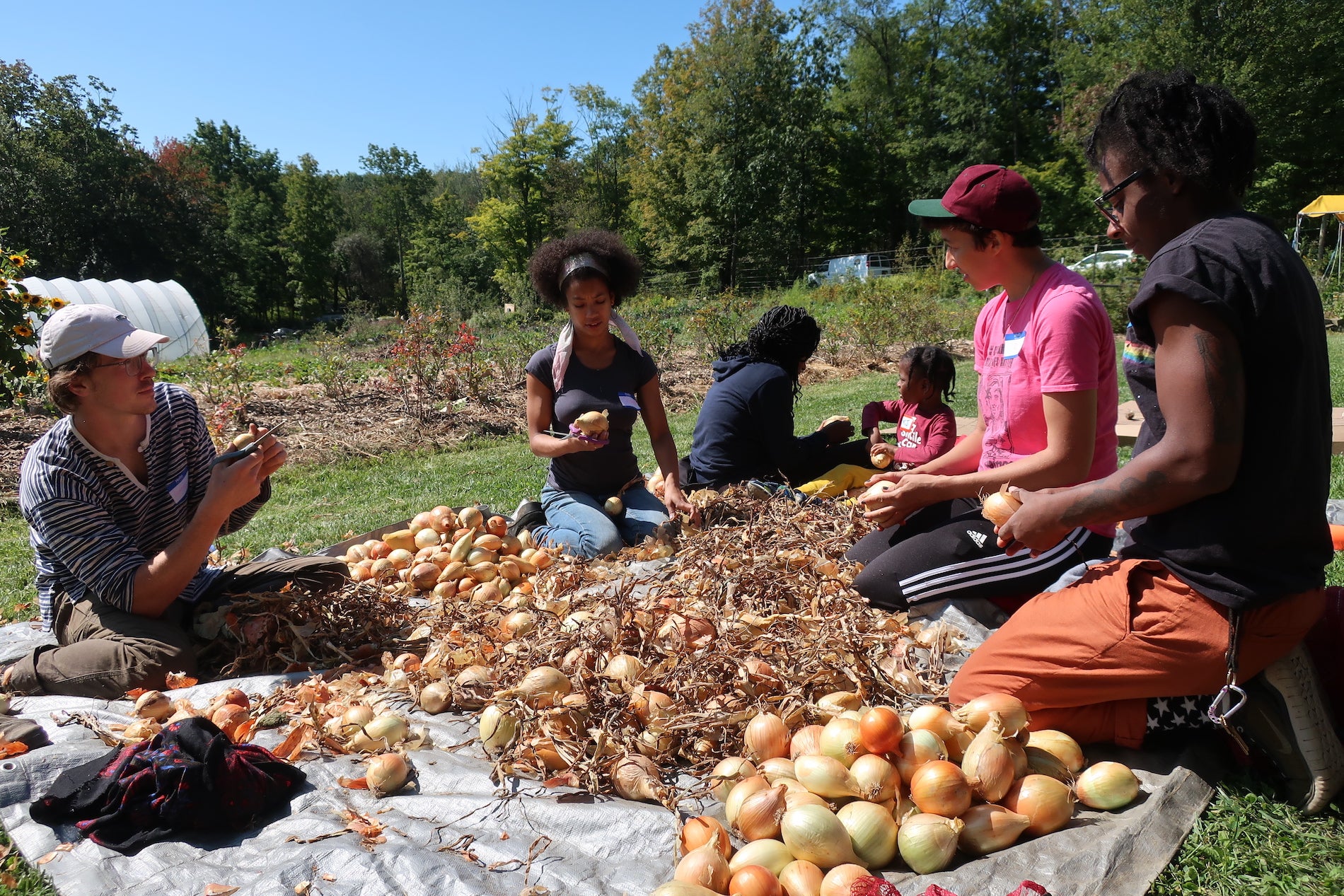
Francis has been thinking of ways to share in the past few weeks. She worked with some friends, fellow students, alumni, and community activists to put up flyers at the start of the pandemic, to see who would need deliveries of hot meals. They gathered excess food from campus and people’s own supplies to make free meals and deliver them to people in need, like those who are immunocompromised, large families, and international students. Her group delivered 36 meals last week, and will deliver 60 meals this week.
They have already run out of fresh vegetables and need to buy more this week, which got them thinking about ways to keep this effort sustained past the immediate crisis. They crowdfunded to start a community garden in the Cleveland area, using borrowed land from her partner’s family farm. Francis said they were thinking about victory gardens, which started in World War I, when President Woodrow Wilson asked Americans to plant vegetable gardens to prevent food shortages. Francis said they plan to use the food for meal deliveries, and going forward, to donate to food banks.
“That’s just a way to ensure that we’re not only doing our part to help, but also to ensure that there’s some small source of vegetables for when the crisis response is over,” she said. What has helped her “maintain a routine, and kind of make myself get up and get going for the day, is to have something that I’m working towards.”
Leah Penniman already teaches people how to farm, and has adapted her team’s programming online.
Penniman is co-director and farm manager at Soul Fire Farm, a community farm in New York state that fights racism and injustice in the food system. The farm already runs programs to train farmers and activists, and now helps organize regular video conference calls, where people can learn from Black and indigenous people, as well as other people of color, about gardening, taking care of livestock, food preservation, and mutual support during the pandemic — everything from where to get compost in the Minnesota area, to getting help translating COVID-19 advice into Spanish for farm workers.
“I’ve dedicated my whole life to the regenerative farming movements and to social justice movements, and there are times still when I feel disillusioned and discouraged and I wonder, ‘Is this really needed, do we really need small farms, do we really need these mutual aid societies? Maybe we’re going to lose anyway, because of the beasts of climate change and capitalism,’” Penniman said.
“What’s been really powerful in this moment,” she said, “is that suddenly the people in the systems that are essential … are those very systems that we’ve been working so hard to create, our farming and food systems … these neighborhood systems of mutual support, where we get groceries for our elders, and support people in accessing services when they are quarantined, this is what our social justice movements have been focusing on, and it is heartening to see these activists and organizers rise to the call.”
Penniman added that Soul Fire Farm’s mantra is “to free ourselves, we must feed ourselves,” which comes out of the teachings of civil rights activist and leader Fannie Lou Hamer. Hamer turned to agriculture in the late 1960s, launching a “pig bank” for Black farmers, and the Freedom Farm Cooperative, buying land for Black farmers to own and farm collectively.
“We can’t fundamentally have freedom and autonomy and dignity and community power without some measure of control of our food systems,” Penniman said. “I think this gardening interest arises from a visceral understanding of that truth.”
She added that while people grow their own food, they should still advocate for the people who are already vulnerable in the existing farming and food system.
As examples, Penniman cited farm workers, many of whom do not get paid sick leave and other job protections, and some small-business owners, and food distributors, many of whom are gig workers. She would like people to advocate for measures that protect those groups in any legislation that tries to lessen the economic blow of the pandemic.
WHYY is your source for fact-based, in-depth journalism and information. As a nonprofit organization, we rely on financial support from readers like you. Please give today.



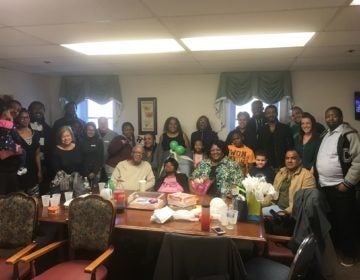
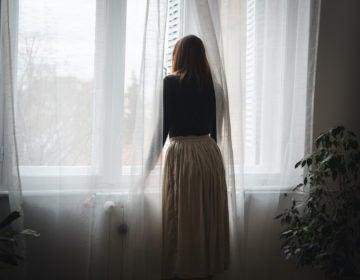
![CoronavirusPandemic_1024x512[1]](https://whyy.org/wp-content/uploads/2020/03/CoronavirusPandemic_1024x5121-300x150.jpg)
